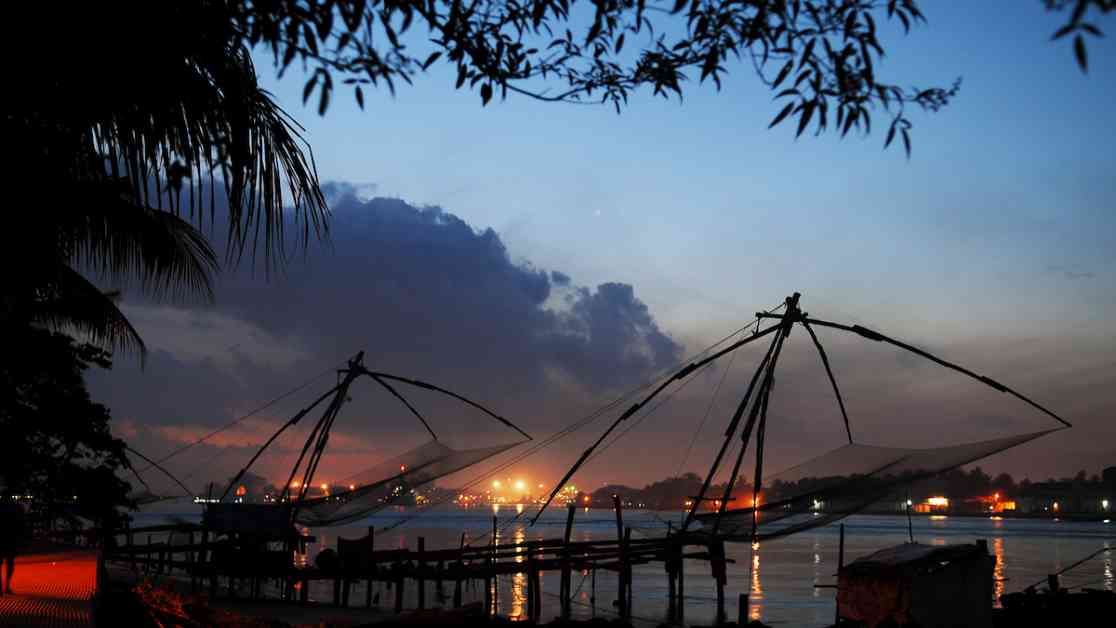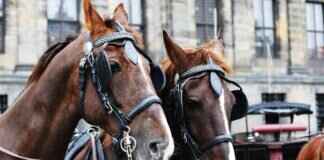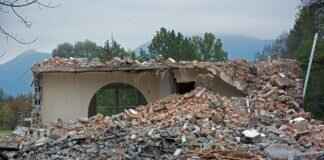Kochi, previously known as Cochin, is a significant port city on Kerala’s Malabar Coast. It has been home to various communities and cultures that have coexisted peacefully for many years. The city boasts a Jewish synagogue, a Jain temple, a Dutch palace, a Shiva temple, a mosque, and a church, showcasing its diversity and rich history.
Fort Kochi, a well-known area in the city, has been famous for its Chinese fishing nets, spice trade, and historic Jew Town, which was once a thriving Cochin Jewish community. Today, Fort Kochi is recognized as the art capital of India due to the Kochi Muziris Biennale, which has transformed the town’s art scene and brought back its former glory.
During the Kerala Travel Mart, I had the opportunity to explore Fort Kochi in the Ernakulum district and immerse myself in its artistic and culinary delights. The picturesque Chinese fishing nets along the shoreline are a sight to behold, with their towering structures against the backdrop of the Arabian Sea. These nets, known as ‘cheena vala,’ were introduced to Kochi by a Chinese explorer in the 14th century and continue to be operated by a team of men.
Visitors can witness the fishing nets in action at Vasco da Gama Square and enjoy delicious seafood and refreshing coconut water from nearby stalls. The sunset views from this spot are truly mesmerizing, as the fading sunlight creates a magical ambiance through the nets.
The heart of Fort Kochi lies in its charming streets, diverse languages, and culinary offerings. Princess Street, Rose Street, and Petercelli Street are lined with churches, art galleries, and cafes, offering a mix of traditional and international cuisines. The Dutch Palace, originally built by the Portuguese and later renovated by the Dutch, houses intricate murals depicting Hindu legends and royal artifacts.
Nearby Mattancherry is known for its spice markets, reflecting Kochi’s history as a major spice trading hub. Visitors can explore the aromatic streets filled with ginger, cinnamon, cardamom, and other spices, and purchase assorted flavors to take home. The district also hosts the India Pepper and Spice Trade Association, showcasing the region’s spice heritage.
The Jewish trail in Fort Kochi highlights the city’s connection to the Jewish community, with several restored synagogues and museums showcasing their history and traditions. The Paradesi Synagogue, built in the 16th century, is a stunning example of colonial architecture, adorned with antique artifacts and hand-painted floor tiles from Canton.
Each tile in the synagogue tells a unique story, reflecting the rich cultural heritage of the Jewish community in Kochi. The synagogue follows Sephardic traditions, with symbolic elements like brass pillars and a perpetual lamp. Visiting these historic sites offers a glimpse into Kochi’s diverse past and the harmonious coexistence of different religions and cultures in the city.














